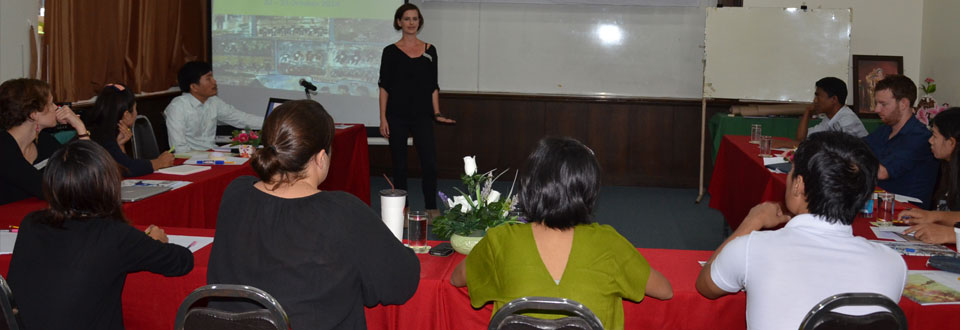Report on Asia Exchange ‘Memory for Change’
Impunity Watch (IW) is pleased to announce the publication of its report based upon the Asia Exchange Meeting ‘Memory for Change’, held in Bangkok from 3-7 November 2014. It was organised by IW, Asian Forum for Human Rights and Development (FORUM-ASIA) and swisspeace. The Exchange brought together 34 Civil Society Organisations (CSOs), two victims’ groups and seven international organisations working on human rights and transitional justice, including Asian Justice and Rights (AJAR), and Asian Federation Against Involuntary Disappearances (AFAD). The event built on a previous exchange meeting on memorialisation organised by IW in 2012. Participants included representatives from Burma/Myanmar, Cambodia, Indonesia, Nepal, Sri Lanka, Thailand and Timor-Leste.
The main focus of the Exchange was on the potential offered by bottom-up memorialisation initiatives in contributing to transitional justice processes. The key issue debated in the Exchange Meeting was the following: can memorialisation activities help to reduce impunity in Asian countries that suffer from a culture of silence and impunity?
Transitional justice processes in S/SE Asia have only witnessed limited advancement over the last years. One of the crucial shortfalls herein has been a lack of bottom-up participation channels that allow local human rights groups, victims’ organisations and other grassroots initiatives to help establish the accountability process in a broader societal context. Two key factors sustain this shortfall. The most important one is the lack of political space for human rights activism. The other factor often obstructing a stronger role for human rights activists and victims is the international design of support for transitional justice processes. In this context, memorialisation initiatives provide local organisations with a significant tool to open up political space.
The Exchange helped to deepen refection among civil society groups and victims’ organisations regarding different memorialisation efforts in S/SE Asia and inspired plans and follow-up meetings which have already been set in motion in several countries. In addition to this report, seven Country Explorations on Memorialisation as Related to Transitional Justice Processes have been written in order to outline the specific situation of each country. These explorations present an overview of the state of affairs in the field of transitional justice in each country, mapping out existing memorialisation initiatives and possible ways forward.
Download the report:
Memorialisation as Related to Transitional Justice Processes in Burma/Myanmar: an Exploration



